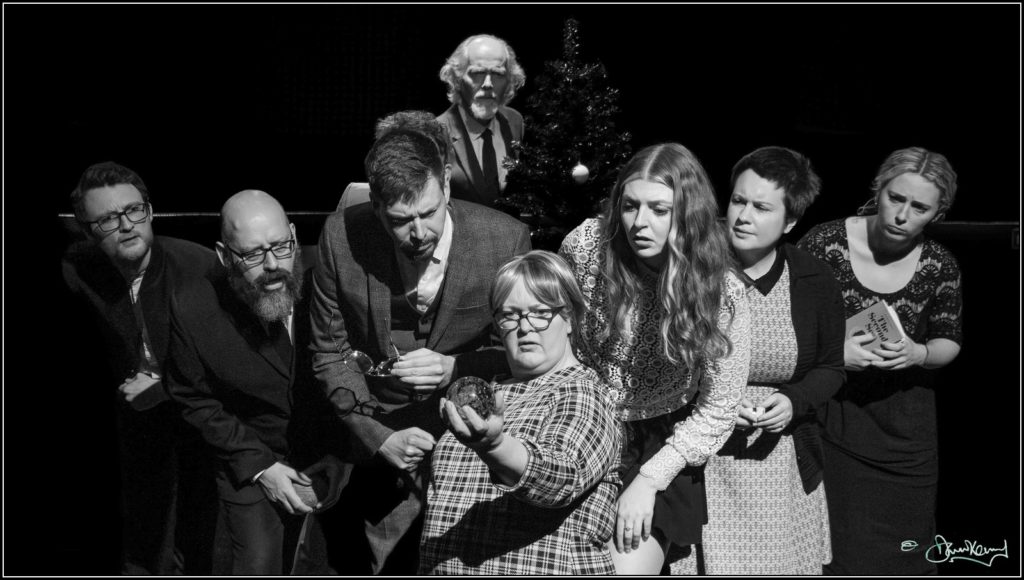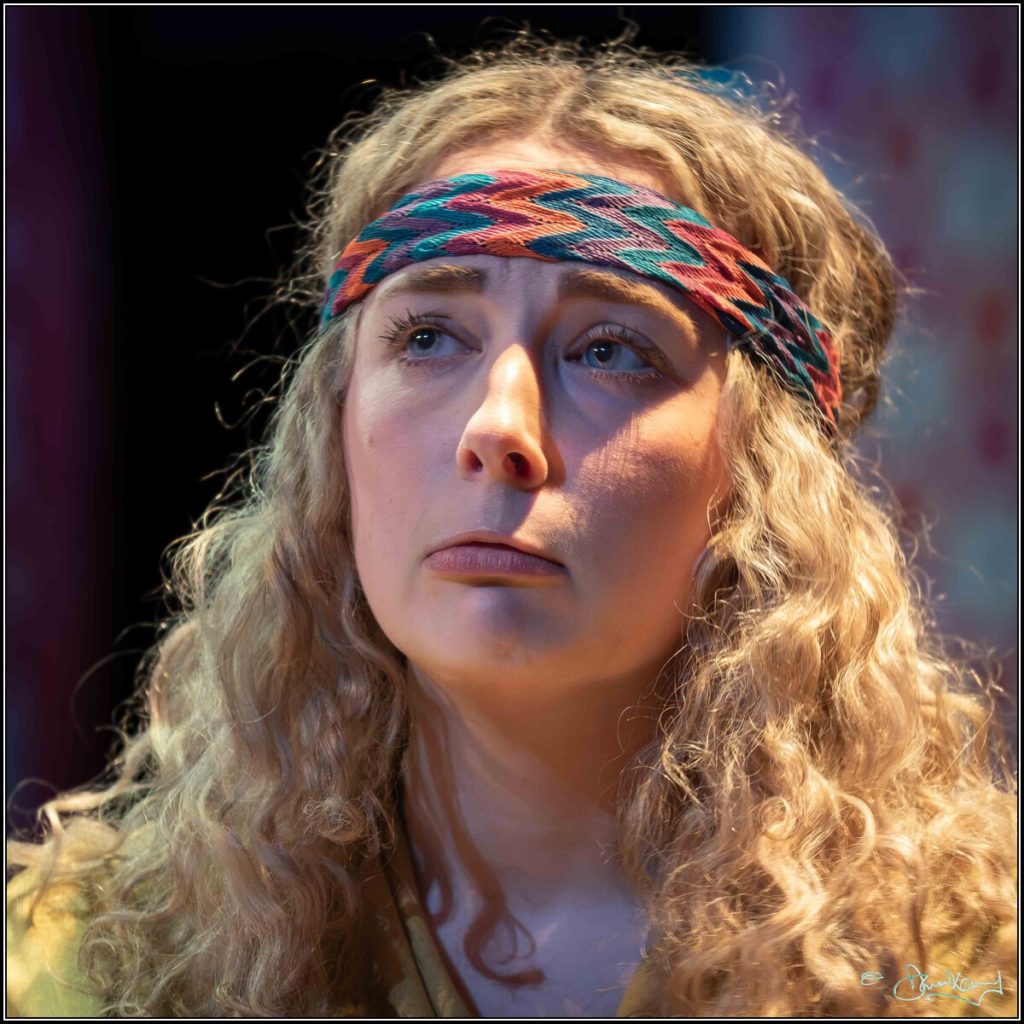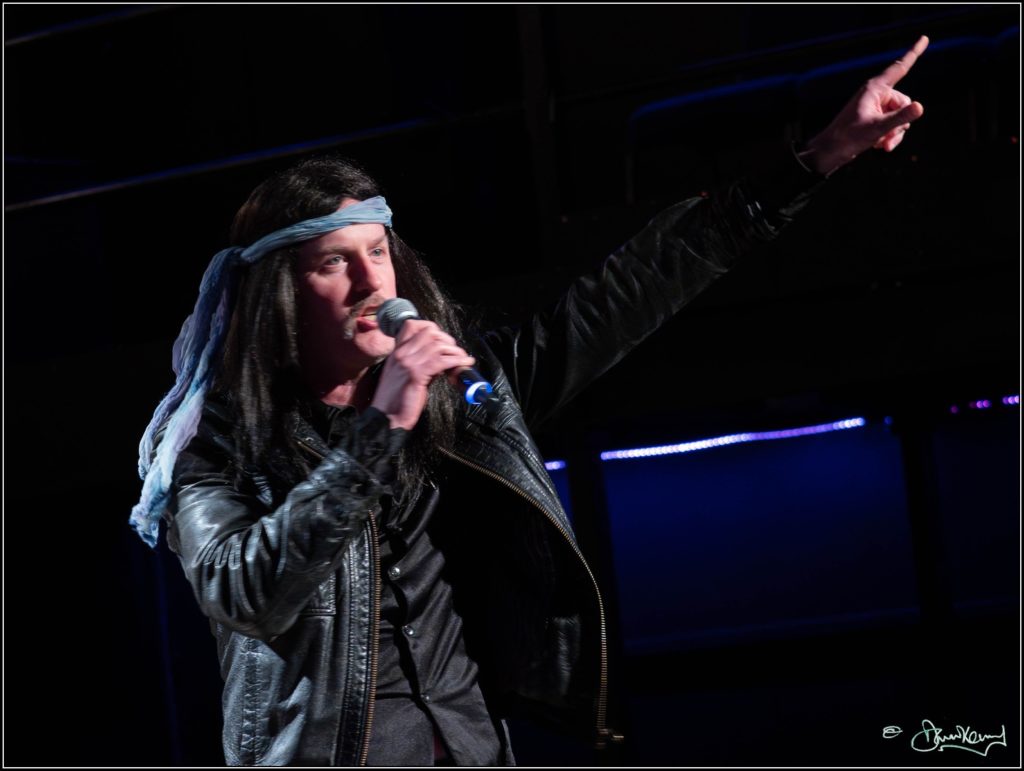
TWENTY one years have passed since York Shakespeare Project first staged The Taming Of The Shrew as its second ever production.
Staging Shakespeare’s “most controversial” comedy has become even more awkward in that time. The term “Gaslighting” is in common parlance; the #MeToo movement has found its voice; misogyny and sexism are a minefield of social media debate, Andrew Tate et al.
In 2003, Paul Toy, YSP’s director for Shrew, talked of the “welcome gains of feminism leaving it as less of a comedy, more of a problem play”. In 2009, Mooted Theatre’s Mark France saw the 1592 play’s sexual politics as “a gradual meeting of minds” in a war of words between Kate and Petruchio where both subvert the roles that society has determined for them. He coined the term “casual cruelty” to encapsulate the ploys of deception conducted by Tranio, Lucentio and Hortensio.
In 2003, Toy reversed the usual gender casting of the lovers and their servants, with Alice Borthwick, a tall Scot with a pageboy haircut, playing Petruchio in strapping manner opposite John Sharpe’s Katherina with his/her pale commedia dell’arte face and rouge lips. “There is now no pretence that what you see is `real’,” he said. “Hopefully, the play can be seen as less of a treatise and more of a game”.
Now, Maggie Smales, whose all-female version of Henry V in 2015 lingers in the memory, returns to the YSP director’s chair for ‘Shrew’, assisted by Claire Morley [her Henry , from that production].
Smales had played a serving wench in a South Yorkshire For Youth production of ‘Shrew’ in the mid-Sixties in Rotherham and Bianca in 1972 on her Bretton Hall drama course, now recalling them as “exemplifying the hypocrisy of a time that seemed to be offering the opportunity of gender equality without any real shift in attitudes”.
“We thought we were shaping a new world order with altered values,” she laments. “But there’s still quite a lot to be done about gender equality”.

No better time to start than now with this bracing production of ‘Shrew’, astutely edited by Smales and Morley. In their hands, ‘Shrew’ remains a combustible, hot and bothered drama that does not shy away from the “inherent misogyny” and gaslighting abuse in Petruchio’s regime of sleep deprivation and starvation rations for Katherine.
Crucially, however, Florence Poskitt’s feminist Katherine has the last say, not so much a shrewish shrew as shrewd in determining her path, rather than “melting” to Petruchio’s taming techniques after their calamitous nuptials.
Smales has set Shakespeare’s battle of the sexes/war of words in 1970, when the sun was setting on the Summer of Love and Germaine Greer published The Female Eunuch, a landmark statement in the feminist movement.
More precisely, Smales’s ‘Shrew’ opens in 1960 with a reimagined induction/prologue (replacing the Christopher Sly one), the cast exchanging presents beside the Christmas tree. The players then find themselves transported into a 1970 world wherein they experience and perform the play.
Judith Ireland’s costumes, from her own collection apparently, evoke that psychedelic age of flares, scarves, long hair, dark glasses and headbands, matched with the hits of Hendrix, The Who and Credence Clearwater Revival.
Ah, the whiff of nostalgia, the look, the sounds, setting up the boisterous fun and games that play out in the hands of Lara Stafford’s Tranio and Sam Jackson’s Lucentio, swapping clothes, genders and roles, and the deluded sparring of Nick Patrick Jones’s Hortensio and Mark Payton’s Gremio (in professional actor turned Shakespeare teacher Payton’s ‘first proper acting experience for almost 20 years’ – and what a joyful return he makes).
Stuart Green’s Grumio, with his guitar and shades, adds to the rock concert vibe, along with Joy Warner in her roadie cameo, while Rosy Rowley and Poskitt both perform a song, Rowley in the rowdy spirit of a Janis Joplin; Poskitt, in white, in a quiet solo spotlight in Fred Neil’s Everybody’s Talkin’.

Rowley is playing Baptista Minola, traditionally Katherine and Bianca’s father, but here turned into their mother: a significant change that alters the male-dominated dynamic. A decision typical of Smales’s good judgement that always marks out her direction.
The “Taming” remains a battle waged between the needs of individual freedom and the demands of social conformity that decree that Katherine should be wed and that Petruchio seeks to apply in his unconventional way.
Poskitt, who took on her role with only a week to learn her lines and another to join the last week of rehearsals, is known for her wide-eyed comedy chops and singing, but there is much more lurking inside that comes out here (as it did in Agatha Christie’s And Then There Were None). Wild, scolding-tongued, as those around her decry, her subversive Katherine is ultimately more than a match to Petruchio’s prodding. Not so much a woman ‘tamed’ at the end as one establishing her own rights.
Paterson’s Petruchio pulls off the balancing act of being a rock music-loving, preening popinjay but humorous too for all his outrageous behaviour. Rik Mayall, Rupert Everett, that brand of English humour.
Maggie Smales has conquered Shakespeare’s problem play, no problem. This ‘Shrew’ is funny, furious, feminist, with an eye to the future too, as peace, love and equality are secured at last.
Performances at 7.30pm tonight; 2.30pm and 7.30pm tomorrow, as part of York International Shakespeare Festival. Box office: tickets.41monkgate.co.uk.
